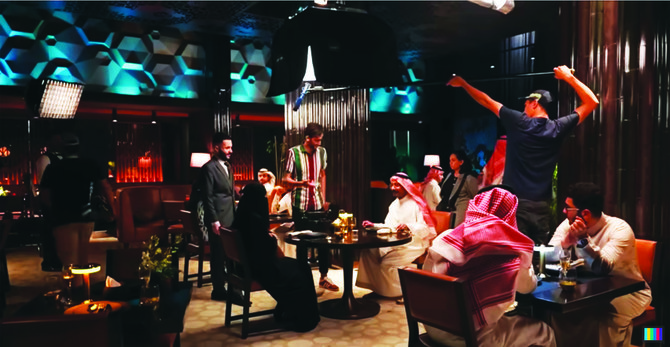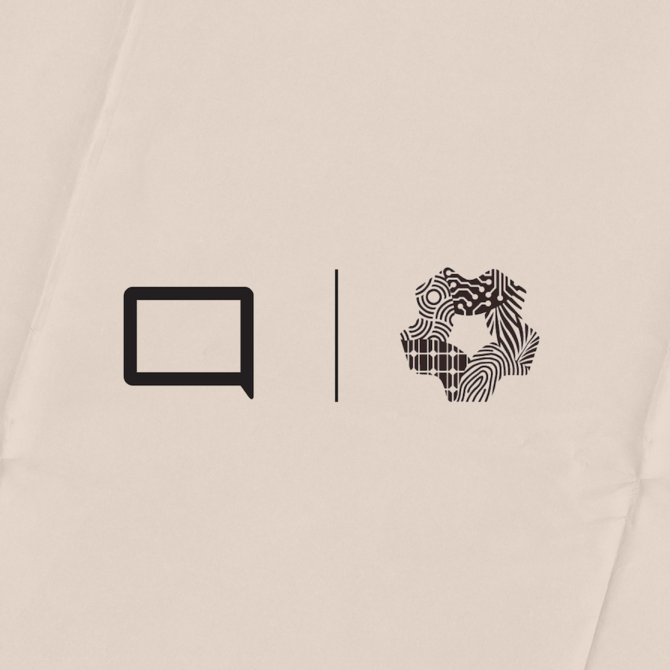DUBAI: Saudi studio Telfaz11 and the Kingdom’s media production hub NEOM signed a deal this month to cooperate on at least nine TV and film productions over the next three years.
“We are thrilled to embark on this partnership with NEOM and to be part of their mission to create a new world-class media hub in Saudi Arabia,” Telfaz11’s CEO Alaa Fadan told Arab News recently.
The partnership “reemphasizes Telfaz11’s core vision and DNA of investing in the creative culture” and provides the company with “new opportunities for growth and innovation,” he added.

Two feature films and one TV series are already in development, and a few other projects have been identified as well, he said.
Telfaz11 has “a rich slate of projects mapped out for the next three years” and will work with NEOM to select which projects would be rolled out as part of the deal, Fadan said.
HIGHLIGHTS
Last year, the Saudi Film Commission announced the Daw funding program dedicated to supporting local productions and talent.
This year Saudi Arabia’s Cultural Development Fund launched a $234-million Film Sector Financing Program as well as a $100-million film sector fund to foster the growth of domestic media.
The Kingdom has made remarkable strides in recent years, driven by visionary initiatives focusing on developing the media and entertainment sectors, says the CEO.
In 2021, Saudi Arabia drew $238 million in box-office revenue compared to only $112 million in 2019, according to research firm Omdia.
Beyond production, the company would also be setting up an office in NEOM by the end of the year, which is “part of a strategic move that will facilitate our vision for expansion in the Kingdom,” he said.
Telfaz11’s physical presence in NEOM will allow it to “increase collaboration with other industry partners, enhance knowledge sharing, and access state-of-the-art facilities,” he added.

Telfaz11’s CEO Alaa Fadan
Lastly, the two entities will work on “multi-disciplinary talent development programs” as part of the partnership, “creating a vibrant talent pool across the value chain and strong career opportunities for graduates,” Fadan said.
They will work with national and international experts to devise programs across different areas of film production including scriptwriting, on-set production training and more.

As the streaming environment becomes more cluttered, audiences are looking for local, quality content making it ever more important for the Middle East, and Saudi Arabia in particular, to foster local talent, he said.
“We are at the epicenter of a massive investment in streaming, driving MENA’s explosive entertainment growth and we see this driving an increase in investment in local content,” said Fadan.
“As the demand for quality content rises, it reinforces the importance of our work and motivates us to continually raise the bar in terms of creativity and production value,” he added.
Telfaz11 has witnessed the streaming boom firsthand. It was among the first local companies to sign a deal with Netflix. In 2020, the streaming giant inked a pact to produce eight films by Telfaz11 after a successful partnership on the studio’s short-film collection “Six Windows in the Desert.”
For Fadan, the partnership with Netflix “presents a significant milestone in promoting local storytelling and elevating the visibility of Saudi and Middle Eastern content worldwide.”
It is, however, not restricting itself to only Netflix and taking a “versatile approach to content creation and distribution” that includes partnering with various platforms, to cater to a wider set of audiences with a diverse content mix, he explained.

YouTube and other social media platforms are important to the company, which has nearly 3.5 million subscribers on the video-sharing channel as well as a partnership with MBC’s streaming platform Shahid for digital content.
“Our collaborations with these platforms exemplify our commitment to reaching audiences through various channels,” Fadan said.
Since its inception in 2011, he added, Telfaz11 has been on “a mission to cultivate the voice of Saudi and empower local creative talent in the region.”
The studio has been working to “unlock the potential of Saudi Arabia’s creative economy, and generate new opportunities for actors, filmmakers, screenwriters, and content creators,” he added.
The Kingdom’s creative economy is poised for success with major investments in the media, film and entertainment industries.
“This development has sparked a surge in the demand for quality content, creating opportunities for production companies like ours, Telfaz11, to contribute to the burgeoning film industry in the Kingdom,” Fadan said.

More than 30 productions have been shot in NEOM alone over the past 18 months, including “Desert Warrior,” “Dunki” and “Rise of the Witches.”
Last year, the Saudi Film Commission announced the Daw funding program dedicated to supporting local productions and talent. And this year Saudi Arabia’s Cultural Development Fund launched a $234-million Film Sector Financing Program as well as a $100-million film sector fund to foster the growth of domestic media.
These are just a few of the initiatives announced by the Kingdom, and as a result, “Saudi Arabia is poised to play a significant role in the global media landscape, both in content creation and production,” Fadan said.
“The country has made remarkable strides in recent years, driven by visionary initiatives focusing on developing the media and entertainment sectors,” he added.
In 2021, Saudi drew $238 million in box-office revenue compared to only $112 million in 2019, according to research firm Omdia.
Moreover, box-office revenues in the Kingdom are forecast to surpass $1 billion by 2020 making it one of the world’s top-20 cinema markets, according to another report.
“The combination of diverse storytelling, technological advancements, and increased international collaborations positions Saudi Arabia as an emerging force within the global media landscape,” said Fadan.





























